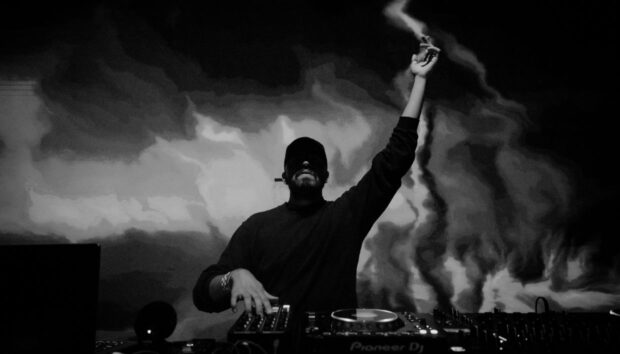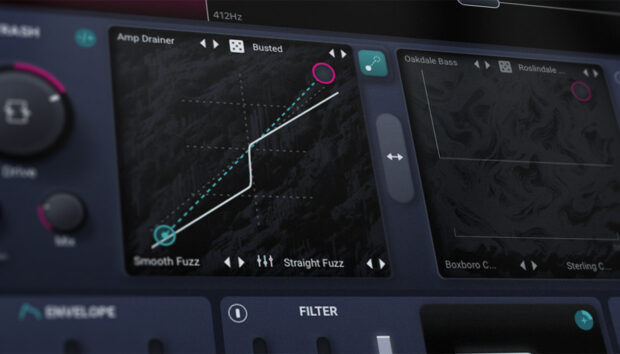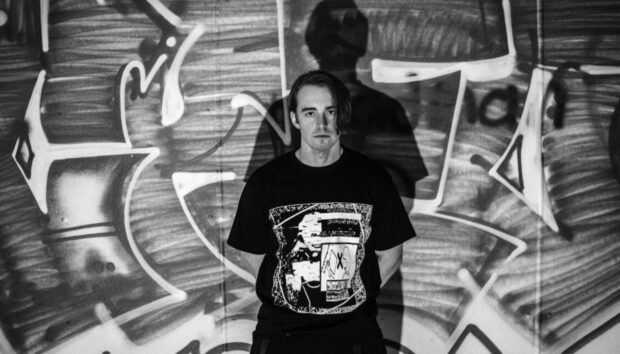
Creating music is a labor of love, but it’s also a journey that requires effective promotion to reach a wider audience. In todays’ music industry, promoting your music involves more than just talent – it demands a strategic approach. In this article, discover several essential strategies and steps to help you promote your music successfully.
Whether you’re just beginning to venture into the music industry, or you’re a seasoned professional ready to take your fame to the next level, these tips will serve as a helpful guide for your music promotion.
Jump to these sections:
- Before you start promoting your music
- Best ways to promote your music
- How to promote your music on social media
Are you new to making or promoting your music? Get pro-quality tracks with the free Komplete Start bundle that includes a collection of samples, instruments, and more to help you create your music.
Before you start promoting your music
There are a few things you need to do before you can start promoting. Skipping these steps will drastically decrease the effectiveness of your promotional efforts, so make sure you can check off all these boxes before moving onto the music promotion tips.
Create professional quality music
Creating music of professional quality before diving into promotion is like laying a strong foundation for a skyscraper – it ensures your music not only captures attention but also stands the test of time. First impressions matter, and when listeners encounter your music, you want them to be captivated by its sonic brilliance. This initial impression is crucial for building your reputation as an artist and for establishing trust with your audience.
The secret sauce to crafting pro-quality tunes is having the right tools. However, when it comes to music production software, not all options were created equal. So, choose wisely what you decide to put into your musical toolbox. With software bundles like Komplete 14 or the free production bundle, Komplete Start, you get a treasure trove of instruments and effects at your fingertips, allowing you to craft your unique sonic identity.
iZotope products, like the ones found in Music Production Suite 6, are like the holy grails of audio engineering plugins – offering tools for mixing, mastering, and sound design that can elevate your music to a level that’s professionally polished.
Starting with professional-quality music and using tools like Komplete 14 and iZotope products ensures that your music not only shines but also has the potential to resonate with a wider audience. It’s about making a statement that says, “I take my craft seriously, and I’m here to deliver an exceptional musical experience.” This, in turn, paves the way for more successful and impactful music promotion.
Know your goals
Before you can successfully dive into the world of music promotion, it’s important that you know what your goals are. It’s like setting a GPS destination before you hit the road – if you don’t know where you wanna end up, how are you going to get there?
Do you want to gain a massive online following? Are you itching to play more live gigs? Maybe you just want your grandma to hear your latest track (shoutout to grandma!) Whatever your dream, having some goals in your back pocket will guide your strategy and help you make the right moves. So, grab a coffee, sit down, and ask yourself, “Where do I want my music to take me?”

Make a music promotion strategy
Sure, you could just wing things and hope for the best. Or, you could set out with a clear plan, knowing where you want to go and how to get there. We already touched on the importance of knowing your goals, but think of that as the ultimate destination. Your strategy is more like your roadmap. So, once you’re done reading through all the different ways to promote your music down below, start creating a game plan for your journey.
Creating a thought-out strategy not only saves you time and energy in the long run, but it also ensures you’re making purposeful moves and maximizing your efforts. It helps you avoid wandering aimlessly and allows you to use your resources wisely, making your music promotion efforts more effective and efficient.
Pro tip: Simplify your strategy
If you’re reading this, you’re likely going to be the one doing most of the promo yourself. And, let’s face it – there are only so many hours in the day. Don’t fall into the music promotional trap where you end up devoting all your time and energy to promoting your music, and not enough time to actually making it!
So, even though we’re going over tons of different promotion techniques for getting your music out into the world, it’s important that you don’t say yes to all of them (and especially don’t try to do all of them all at once). Trust me. I’ve been there. It just leads to burnout and, honestly, not much to show for it.
If you want to build a successful music promotion strategy, remember this quote by Marie Forleo, “Simplify to amplify.” I’d rather you only choose two tips from the list below and excel in those areas rather than get lost in the mix! Again, trust me. You’ll reap so much more reward this way.
The best ways to promote your music
Alright, now for the part where we explore the best ways to get your music out there. Let’s dive in!
1. Craft your own online platform
We’ll share some tips and tricks for how to promote your music on social media a bit later on, but first let’s look at the importance of having your own online platform. Building your brand only on social media is like building a house on rented land. At the end of the day, social media companies don’t owe you anything, and there’s nothing you can do to prevent them from changing their rules, regulations, or algorithms – leaving you in the dust (or, heaven forbid, with a blocked account)!
This is why it’s important to run your own online platform if you’re looking to make a long-term name for yourself in the music industry. This includes things like a website, an electronic press kit, and even your own email list. Basically, you’re going to want to claim a little corner of the Internet all for yourself so that you’ll always have a place where fans and potential listeners can discover your music, connect with your story, and stay updated on your latest releases and activities.
Online music promotion isn’t just about making noise – it’s about crafting a captivating digital space where your music can shine, and your audience can become part of your musical journey.
Make a website
A professional website is your digital hub. It serves as a central platform where fans can find your music, news, tour dates, and merchandise. A well-designed website can make a lasting impression and build trust with your audience. Services like Wix and Squarespace allow you to design a great looking website without knowing any code. Or, if you aren’t very design savvy, consider hiring a freelance web designer through a site like UpWork.
If you want to take your music promotion seriously, there’s no excuse for not having your own website. Plus, there’s just a really fuzzy feeling you get from knowing you get to say, post, and share whatever you want, however you want. Having your own website lets you create an experience around your music. It allows you to present your tunes, lyrics, photos, and story exactly how you wish.
Create an electronic press kit
An electronic press kit, or EPK for short, is kind of like your artist resume or media portfolio. It serves to simplify the process for media outlets and industry professionals to learn about you. A good EPK will briefly highlight your past music releases (and successes) as well as inform your audience about where you and your music will be heading in the future.
Having a great EPK is vital because it simplifies the lives of busy journalists, event planners, and industry folks. Instead of hunting for your scattered info, they can quickly find all the information they need, including:
- Biography
- High-resolution photos
- Videos
- Music samples
- Upcoming shows
- Previous press coverage links and quotes
An EPK is your ticket to getting noticed, securing gigs, and grabbing media attention.
If you make a website for your music, simply host your EPK on its own webpage. Then whenever you’re promoting any new music projects, you can simply send out the link directly to press outlets or booking agents. Another option is to simply create a one-page PDF with all your artist info and then throw it in a Dropbox folder or Google Drive folder with your press photos and music samples. It may take a bit of work to create, but having a professional electronic press kit can really open doors and help you get your music out there.
Start an email list
I know most people think of email as old school, but let’s be real – everyone with access to electricity has an email address. And, if you can get someone’s permission to send them emails whenever you’re promoting new music or upcoming shows, you’ve hit the gold mine.
You see, platforms like Instagram have algorithms at play that restrict your posts so that only a percentage of your followers will actually see them. But, with email, you have the potential of reaching 100% of the people who’ve signed up to receive your updates. Not so old school anymore, huh?
You can use tools like MailChimp, Brevo, or Hubspot to store your email list and easily send out attractive looking emails whenever you’re promoting a new music release or upcoming show. Or, you can even use it to offer your loyal fans exclusive content, updates, and promotions.
The key here is to send newsletters regularly in order to keep your audience engaged and informed. Don’t spam them,, but try to send at least one newsletter each month in order to keep you and your music top of mind (and to avoid that dreaded spam folder).
Encourage your friends, family, and existing fans to join your mailing list and you’ll be surprised at how quickly it grows. Also, don’t be afraid to promote your email list whenever you’re performing live. Chances are, if they’re at your show, they wanna hear more from you and follow along on your journey. Plus, once you have their email address, you can repeatedly keep in touch whenever you’ve got something new to share!
2. Distribute your music on streaming services
Now that you have your own online platform ready to go, it’s time to start releasing some new music. And, when it comes to releasing new music in today’s world, being on streaming services is not just an option – it’s a necessity for musicians looking to thrive in the industry. Streaming platforms provide an unparalleled opportunity to reach a global audience, making it easier than ever to share (and make money from) your music.
Streaming services (like Spotify, SoundCloud, Apple Music, Tidal, Deezer, Amazon Music, etc.) offer accessibility to millions of potential listeners, enabling you to gain exposure and grow your fan base. But how do you get your music on these platforms? The best way to get your music on all the major streaming sites is to go through a distributor like Amuse or Distrokid. Simply upload your track, artwork, and info and they’ll make sure it gets published on all the major platforms.
One added benefit of having your songs on streaming services is that it can provide a steady source of revenue through streaming royalties, helping you to earn income from your music even when you’re sleeping. Plus, many of the leading streaming platforms offer valuable data and insights into your listeners’ demographics and preferences – allowing you to refine your music promotion strategy as needed.
How to promote your music on Spotify
Of all the streaming platforms out there today, Spotify deserves a special shoutout. Not only is it the most popular option (thanks to its 365,000,000 monthly active users), but it’s also proven to be quite dedicated to the success of the modern musician. Spotify’s personalized playlists and algorithm-driven recommendations help expose your music to users who are likely to enjoy it, which increases your discoverability.
On top of that, Spotify for Artists provides a platform for direct engagement with your fans, allowing you to share updates and connect on a personal level. Plus, with tools like Discovery Mode, Spotify makes it easy for you to get your music in front of the people who actually want to hear it.
Arguably the best promotion tool Spotify has brought to the table is by allowing artists to pitch their unreleased music directly to Spotify’s editorial team (via the Spotify for Artists website). Getting featured on a popular Spotify playlist is how many newer artists get out from the shadows and into the limelight. However, the competition for Spotify curated playlist spots can be fierce, so don’t forget to research and pitch your music to independent playlist curators who specialize in your style of music as well.
3. Reach out to press and blogs
After you’ve scheduled a new release, it’s time to spread the word to the press. Create a list of music blogs, magazines, and online publications that you think would be interested in sharing your music with their readers. Then, start sending out some emails.
Keep in mind, the goal isn’t to “spray and pray” – meaning you shouldn’t be sending out your press releases to anyone and everyone. Sending personalized pitches can really do wonders to help you secure reviews, interviews, and features. So, don’t just send a mass, cookie-cutter email out to as many press people you can find email addresses for. First, make sure you’re only messaging publications who you actually feel would align with your music. And second, make sure the emails are both professional and personalized.
Note that people in the press are more likely to work with you if you make their job as easy as possible. Don’t forget to send them a link to your EPK. And, when you reach out with info about your new release, make sure to include a brief description of why they should care. After all, the job of the press is to provide the content their readers want. So, tell them why their readers will love your music!
Positive coverage from respected sources can significantly boost your credibility. Just don’t forget to thank them for helping you promote your music. And, definitely don’t forget to add links to any new press coverage to your EPK!
4. Collaborate with other musicians
Collaboration is a powerful tool in the music industry. Although it can be tricky trusting someone else with your musical vision, partnering with other musicians can help introduce your music to new audiences outside of your current fanbase. Collaborative projects that feature diverse talents often attract attention and generate interest from fans of each participating artist. So, if you want to grow your following and get your music in front of more listeners, collabing with other artists can really help skyrocket your music career.
Don’t forget to be strategic about this too! If you’re looking for collaborations to help promote your music, look for partners with audiences slightly outside your “fan-zone.” For example, if you’re a dubstep artist, collaborating with only dubstep artists may not do as much for your popularity as if you were to release a collab with a trap or bass house artist. In short, think of your collaborations not just as fun co-working projects, but as strategic tools as well.
5. Play shows regularly
Regularly playing shows is one of the best things you can do if you’re looking to promote your music. Live performances provide a direct and personal connection between you and your fans, fostering deep loyalty and creating memorable experiences. But, they’re also a powerful promotional tool, allowing you to showcase your talent to a wider audience and enhance your reputation in the industry.
Whether you just start scoring more gigs in your hometown, or you book a full-on European tour, playing shows for a live audience gets your music out there for people to feel it, resonate with it, and then sign on as lifetime fans.
PRO TIP: Bring an email list signup form with you to every live show to capture new fans’ contact info and be able to keep them posted on future shows and new releases!
6. Work with a team
As your music career grows, assembling a team becomes crucial. This team often includes a manager, a booking agent, and a publicist. These are the people who are gonna help you catapult your fame to the next level, so make sure you choose your team wisely! With the right team, you can get help navigating the complexities of the music industry, so that you can focus more of your attention on creating and sharing great music with the world.
Hire a manager
A manager plays a pivotal role in your music career. They can help you make informed decisions, negotiate contracts, and connect you with valuable industry contacts. A good manager can be your advocate, ensuring you get the opportunities you deserve.
Get a booking agent
A booking agent specializes in securing live performances for artists. They can help you book gigs, negotiate fees, and ensure that your live shows reach the right audiences. Oftentimes, they’ve also got your back to make sure you get paid for your hard work on stage.
Work with a publicist
A publicist helps shape your image and build your brand. They work on getting your music featured in the media, organizing interviews, and managing your public relations. As I mentioned earlier, a well-executed press campaign can significantly boost your music’s exposure. So, having a dedicated team member to handle your PR is going to be highly valuable for you and your success in the industry.
Sign with a label
Signing to a record label offers the opportunity to access industry expertise, resources, and connections, which can significantly boost your music career. Labels can provide financial support for recording, marketing, and touring, which can relieve you of many financial burdens. Also, record labels often have established distribution networks that can help you reach a wider audience, increasing your chances of commercial success and exposure. Before you sign to a label, though, make sure to read the essential guide to signing your first contract.
How to promote your music on social media
Alright, now let’s look at some ways to successfully promote your music on social media. Social media is a powerful tool for connecting with fans and sharing your music. There are so many social media platforms out there, and new ones are popping up all the time. It can often seem like such a struggle to keep up with the latest social media trends, let alone use them effectively to promote your music.
Social media is truly a never-ending game, so instead of covering the hottest tips and tricks for how to blow up on each platform, we’re going to share some timeless social media advice for promoting your music.
1. Choose the right platforms
Before you go out and sign up for accounts on all the social media sites you can remember, take a second to think about which ones will be the most beneficial for your promotional goals. Choose platforms that align with not only your audience, but with the type of content you plan on sharing.
If you love making and sharing videos, TikTok, YouTube, and Instagram are some of the best options for you. If you’d rather share real-time updates about your life and your artistic process, X or Facebook may be better choices. If you’re all about live-stream content, you might opt for a Twitch account.
Really take some time to strategize, and possibly even research which platforms are best for your genre, before deciding which social media sites to be active on.
Remember, you don’t have to be on all of them. Just because your friend told you about a brand new social site that you “just have to be on,” doesn’t mean you need to take the bait. Again, there’s only so much time in a day. It’s better for you to pick one or two platforms (and run them like a pro) than wind up doing a mediocre job at managing a handful of profiles.
Start by picking one of the most popular platforms, set up a profile, and then allow yourself to get in the flow of actually using it to promote your music before you decide to add managing a new one to your to-do list. It’s better to have an actively engaged audience of 1000 followers on one platform than it is to have a disorganized smattering of fans spread over nine different social media accounts.
2. Be consistent
To build a strong social media presence, consistency is key. Just like you wouldn’t want to play a jazz tune at a metal concert, it’s crucial to maintain a consistent style and theme across your social media posts and profiles. This doesn’t mean you have to share the same thing every day, but rather, create a vibe and brand that your fans can recognize. Keeping your content consistent will ensure your followers continue coming back for more.
Once you get the ball rolling and you’re in a good social media groove, don’t take months off between posts! Posting regularly keeps your audience engaged and helps you build a dedicated fanbase. It also helps your chances of your content being seen by more people. If you’re consistently posting content people are engaging with, the social media algorithms are actually more likely to show and recommend your content to other users.
To really unlock the full potential of social media for your music promotion, keep things consistent.
3. Post strong content
Whether you’re sharing posts, images, stories, reels, snaps, videos, or streams – you need to make sure your content is top dollar. There’s a lot of noise out there, and when you’re competing for attention on social media, it really goes a long way to make sure your content snags the focus. People often advise not to judge a book by its cover. But, honestly, we all do it. So, having pro-quality content is pretty important for attracting new fans on social media.
Don’t just use social media to constantly promote new releases, though. Use it to create a memorable experience for your followers. Share behind-the-scenes footage from your life, post some dope visuals that complement your newest release, share your inspiration for your latest lyrics, or give a sneak peek of what you’re working on. Whatever you do, put in the extra effort to make sure your content stands out amongst the noise.
4. Engage with others
Connecting with fans is a necessity for any musician looking to grow their following. This connection fosters loyalty and support and makes it so your fans are more likely to attend your shows, stream your latest tunes, and promote your music for you! Fans who feel connected become passionate advocates, driving organic, word-of-mouth promotion that reaches whole new audiences. Honestly, building a strong fanbase can open so many doors to new opportunities.
Whether you’re connecting with your fans via live stream, by posting personal updates, or you’re just chatting one-on-one in your direct messages – make sure your interactions have a personal flavor to them. After all, the key to your success in the music business is the unwavering devotion of your fans. So, show them a little love.
…and engage some more
Don’t limit your engagement on social media to only your fans. Interact with other musicians – comment on their content, publicly congratulate them on a recent release, or even share some of their tracks with your followers. It’s called social media for a reason. Be social! The more you work towards building positive connections on social platforms, the faster your fan base will grow.
5. Create a content calendar
In order to keep you consistently and strategically updating your social media profiles, it can help to create a content calendar. Sit down at least once a month and map out all the content you wish to share over the coming weeks. Start by penciling in any upcoming music releases or live performances you have coming up. Then, plan out your content around these milestones in order to adequately promote them.
For example, if you have a new single dropping at the end of the month, you can start to give hints or even share a pre-save link a few weeks in advance. For the release day, you can plan out some exciting “get-it-while-it’s-hot” content. And, for the week or two after, you could share some behind-the-scenes info that allows your followers to learn more about the track (which also helps remind them to keep it playing on repeat).
Don’t wait until the last second to map out your posts – set aside some time to keep your content calendar consistently updated. Tools like Later, Buffer, or Sprout Social can help you with this because they allow you to plan and schedule out all your posts across several social media platforms all at once.
A good content strategy not only helps you maximize your promotional efforts, it also helps you appear more professional to your fans, the press, and potential collaborators.
6. Consider advertising
Paying for advertising on social media platforms can give your music a turbo boost. Sure, it costs a bit, but think of it as an investment in your music career. You get to put your jams in front of exactly the right people – those who are likely to groove to them. And you don’t need a lot of money to get started. You can set a budget that works for you. Just remember, though, the effectiveness of an ad campaign isn’t going to be determined by how much money you invest in ad-buys. It really comes down to your ability to create ads that catch people’s attention and get them to act.
A caveat: it’s important to think about who you wish to get in front of and the outcome you hope to get from an ad campaign before you go handing over your hard earned dollars to anyone. Whether you’re trying to get more followers for your account or you’re wanting to direct traffic to your newest single on Spotify, make sure you know what your goal is before you start advertising as this will allow you to accurately target the right audience and give them a clear CTA (call to action) with what their next steps should be.
…But what if I don’t have any followers yet?
If your follower count is currently chilling at zero, don’t worry. You can still begin promoting your music – even if it’s to a seemingly empty room! I know this might sound silly, but go ahead and start posting before you even get your first follower. After all, people want a sample of the content you’re going to be sharing before they commit and hit that follow button. I mean, would you go out of your way to follow a new account that didn’t have any posts? Probably not.
Once you’ve got a few posts on your profile, go ahead and jump into online music communities, share your tracks, and mingle with potential fans and future collaborators (both online and in the real world). After awhile, that seemingly empty room will start to fill up and your future fans will be delighted that they can go back and look at those first few posts.
Remember, building your music empire takes time, so don’t be bummed if you’re not an overnight sensation. Every great musician had to start somewhere. So, even if you’re just a beginner, you can still use the tips on this page to help you start moving your music promotion forward. Just don’t give up! Even though it’s hard work, keep at it, keep creating killer music, and continue to nurture your fanbase as it grows. You’ve got this, rockstar!
Start promoting your music
Promoting your music is an endeavor that requires equal parts strategy and dedication. Collaborating with others, playing as many live gigs as you can, assembling your A-team, and leveraging online tools are great steps to start taking today. Remember, success in the music industry often hinges on persistence and a genuine connection with your audience. By following the strategies above (and staying true to your artistry, of course), you can increase your chances of making a meaningful impact in the music world.
And don’t forget to make pro-sounding music before you start promoting! Native Instruments free Komplete Start bundle is a great way to get started.















